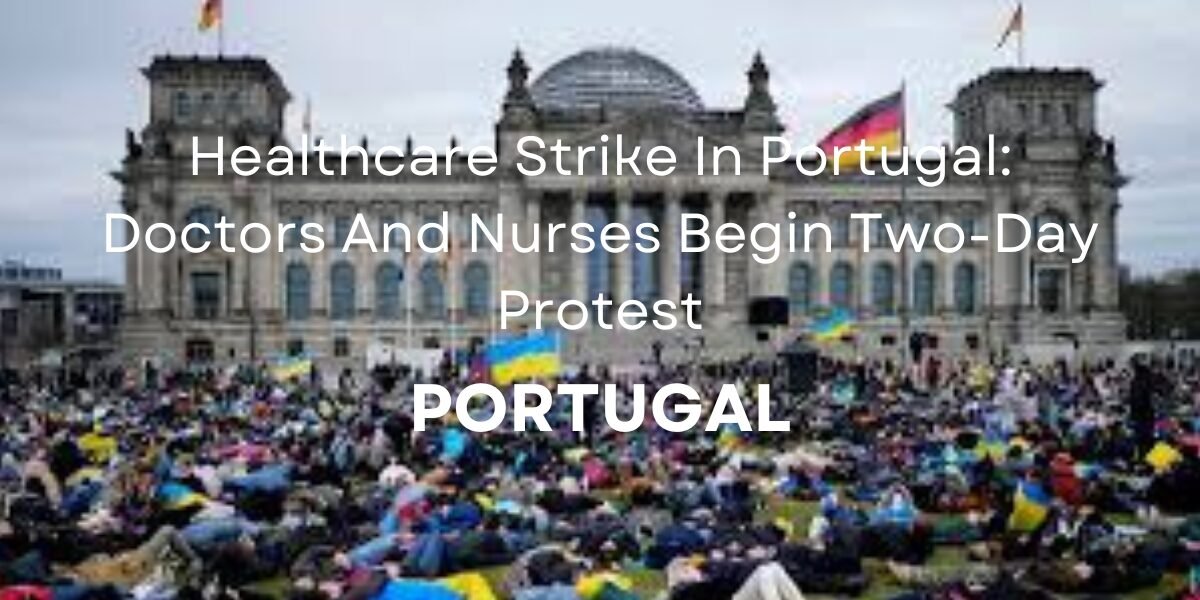The healthcare system of Portugal is going to be severely affected due to a two days strike by nurses and doctors which is starting at midnight tonight. Portuguese Nurses’ Union (SEP) and the National Federation of Doctors (FNAM) will lead this strike in protest of unresolved issues over salaries, working conditions, and the overall situation of the National Health Service (SNS).
Doctors will protest on the first day of the strike and nurses will hold a sit in on the second day. The protest will be outside the Ministry of Health in Lisbon which will highlight an increasing rift between the government and the medical profession.
Read More About: PS Supports 2025 State Budget, Seeks Government Concessions
Healthcare Strike Background

FNAM and SEP have been in discussions with the Ministry of Health for an array of months. The discussions are mostly related to salary and working conditions. But the main reason is that nothing has been done to solve their concerns.
Joana Bordalo e Sá, president of FNAM has been particularly outspoken. She is criticizing Health Minister Ana Paula Martins for neglecting their serious concerns. The minister has been facing criticism for her management of the healthcare industry ever since she took office in April.
Doctors and nurses both have shown their frustration and expressed that current working conditions are not sufficient for both the staff and the whole healthcare system.
The SEP’s president, José Carlos Martins said if the government does not address the concerns of healthcare workers then a coordinated strike will be required in the future.
Bordalo e Sá said by criticising Ana Paula Martins:
We are totally independent structures (…) but the fact that both unions have called a strike at the same time only demonstrates the discontent that exists in this area and how there has been no competence on the part of this Ministry of Health, of (health minister) Ana Paula Martins, to resolve the situation
FNAM Demands From The Ministry
1. Salary Discrepancies
The low wages for healthcare professionals in Portugal are one of the main causes of this strike. According to FNAM, doctors in Portugal are among the lowest paid in Europe. Due to low pay, doctors are leaving the public sector and going abroad for better opportunities.
Nurses are also demanding a fair valuation of their wages. The SEP has said clearly that nurses are not properly paid for the challenging and often risky job they conduct.
The president of FNAM said:
We don’t have any serious negotiations underway, there are only negoiations that are a façade. And when it comes to doctors specifically, there is nothing at the moment that can resolve the issue and attract more doctors to the SNS, which is why FNAM has also declared this strike
The SNS will continue to lose skilled professionals which will ruin an already fragile system if they do not increase salaries in healthcare sectors.
2. Working Conditions
Doctors and nurses want to upgrade working conditions in addition to higher wages. FNAM has consistently asked for a return to a 35 hour work week and a 12 hour limit on emergency services. Many healthcare workers are now doing overwork. Long hours contribute to stress that will result in bad attitude and even greater turnover rates.
3. Career Progression
Moreover, nurses feel frustrated by a lack of successful professional development. The SEP has asked for the redress of situations of injustice regarding career development and the estimation of points toward promotions. Many nurses believe they are stuck in their professions and are unable to grow despite their years of experience and skill without these adjustments.
4. Defending The SNS
The future of the SNS itself is perhaps the most important concern for both organizations. Doctors and nurses are not fighting just for higher compensation and better working conditions, but also to protect the public healthcare system.
Bordalo e Sá pointed out that this strike is about defending the SNS. She feels that SNS will be in danger if these issues are not solved. She emphasized that this is an emergency for the whole population and that without significant funding and change, the SNS will be unable to serve the public as intended.
She said added:
It is also a question of defending the SNS, which is public, universal and of quality to serve the entire population, whether in primary health care, hospitals or public health. We believe that this is an emergency
Strike’s Impact On Healthcare Sector And Public

This two-day strike may be just the beginning. There is increasing momentum for a combined protest that will include all healthcare workers, including physicians, nurses, pharmacists, and technicians. This is regardless of the fact that both FNAM and SEP are organizing separate strikes.
Such a strike might cause even more problems in the healthcare system. But organizations think that it is essential in order for the government to respond.
Bordalo e Sá also added:
We never tire of saying that we demand a minister who understands health – and we hope that on Tuesday, in front of the Ministry of Health, we will have the doctors, but also other health professionals, health service users, the population in general, to defend, above all, the SNS
She has already declared that further action will be taken but it depends on how the Ministry of Health reacts to the strikes. She has not ruled out the possibility of increasing the protests, which might lead to even larger rallies in the coming months.
The public will be having difficult conditions over the next two days. Healthcare facilities and hospitals are going to see severe delays, with only emergency services working. Both organizations have asked the public to support their cause by saying that the future of the SNS is in danger.
As Bordalo e Sá pointed out this strike is about more than just the professionals. it is also about maintaining the SNS as a public, universal institution that delivers great care to all citizens.
